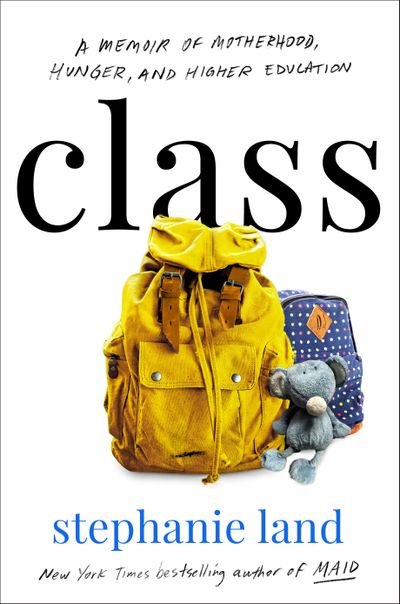Northwest Passages author Stephanie Land’s ‘Class’ praised for ‘raw’ and ‘intimate’ take on poverty and motherhood

Stephanie Land – a prolifically acclaimed writer from the Pacific Northwest, a New York Times bestseller and a one-time featured author on a presidential reading list – comes home Wednesday to Northwest Passages at Gonzaga University to discuss her experiences as an English major juggling courses, a child and the expenses of living in our modern world.
Her experiences pushing through college are documented in her recent release, “Class,” Land’s second book after 2019’s “Maid.”
Land’s memoirs have enticed both critics and the common reader. “Class” earned a 3.7-star rating on Goodreads, with the bulk of readers (32%) leaving a four-star rating. “Maid” earned a similar rating at 3.85 stars. “Maid” also was featured on Barack Obama’s 2019 reading list, in which the former president described it as “a single mother’s personal, unflinching look at America’s class divide.” Obama also praised the memoir for its realistic depiction of the “tightrope” many Americans walk just to get by.
“Class” comes as the sequel to “Maid,” a New York Times bestseller and eventual Netflix series that chronicled Land’s life, starting from her childhood in a middle class family and ending with her working as a “cleaning lady” at a motel and at wealthy homes. Her first memoir was brutal, and “Class” follows similarly.
The book is nonfiction, and because of that, it’s far more bleak than any books to come out of dystopia or any of its adjacent sections of fiction. It’s the true story of poverty on a personal basis, and a facet to explore social programs, wealth inequality and the hardships of being a single mother raising a child in the U.S.
“ ‘Maid’ set the bar incredibly high for Stephanie Land, opening up a whole discourse on working conditions and the lives of those with the chips stacked against them. ‘Class’ sees that bar, and raises it. Weaving together themes of motherhood and ambition, it is deeply personal, universally felt and profoundly moving,” B&N Reads wrote in its review.
Despite the harsh circumstances explored in the book, it still has moments for catharsis. Land takes time to describe beautiful hikes throughout Montana’s Mount Sentinel with close friends and parties in downtown Missoula – providing moments of solace intertwined with her struggles.
“Class” picks up where “Maid” left off, with Land moving to Montana to attend college. Though the move brought some relief from her ex, escaping one challenge brings many more for Land. She writes about the demanding circumstances she faced going through college, with student debt high enough to risk foreclosing the home of Land and her child, along with the struggles of being a single mother.
College wasn’t easy, but we can see how Land’s English education paid off throughout “Class,” described by the New York Times as “intimate” and “revealing,” with prose that’s enticing to readers.
People Magazine called Land’s second book “raw” and “inspiring.”
Publishers Weekly declared the memoir both “captivating” and “eye-opening,”as well as an essential source of education for any American who hasn’t faced economic anxiety and hardship. It seems fitting that a book about Land’s own struggles throughout higher education has become a champion of education on college struggles, with Kirkus outlining the book as “An illuminating portrait of a part of the higher education experience that is often ignored… a powerful read.”
Editor’s note: This story was updated Nov. 28, 2023, to reflect that the Northwest Passages event is Wednesday.